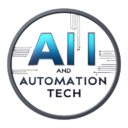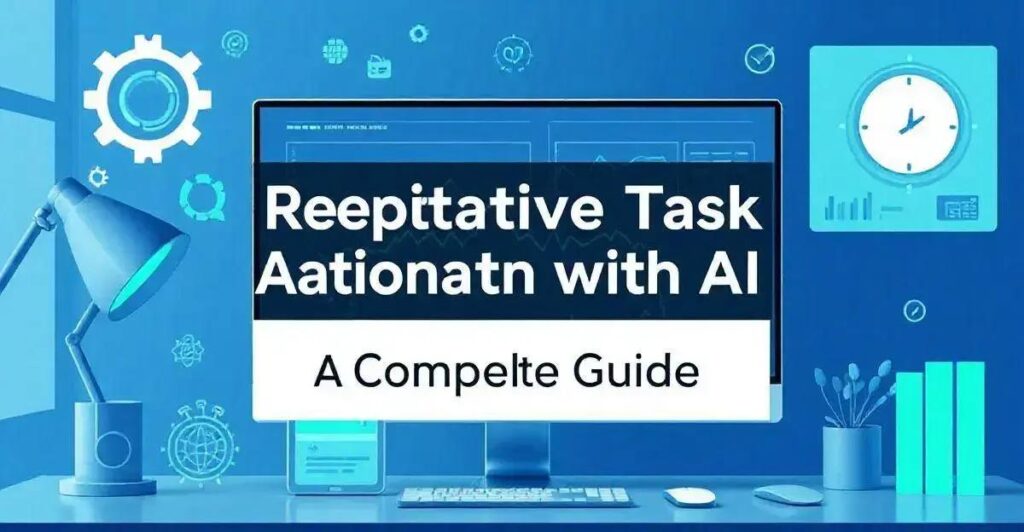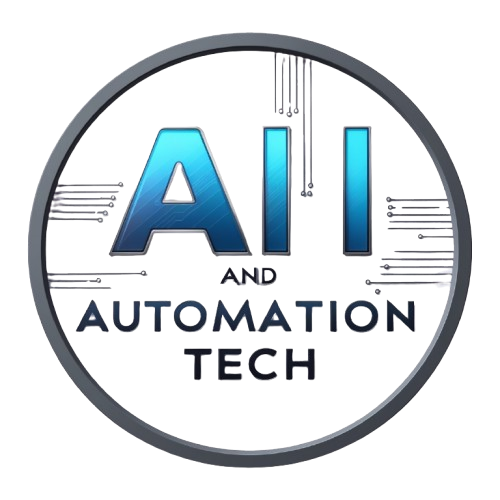Are you tired of wasting time on repetitive and mundane tasks? Artificial intelligence tools for task automation can be the game-changer you need.
By leveraging the power of AI, you can streamline your workflow, increase efficiency, and free up more time for high-value tasks.
In this article, we’ll explore the top AI tools for task automation and how they can benefit your business.
Introduction to AI Task Automation
The concept of Artificial Intelligence (AI) Task Automation revolves around the idea of leveraging AI to streamline and optimize business processes, freeing up human resources for more strategic and creative tasks. AI can be used to automate repetitive and mundane tasks, allowing employees to focus on higher-value activities. This approach can lead to significant cost savings, increased productivity, and improved customer satisfaction. By embracing AI task automation, businesses can gain a competitive edge in the market and stay ahead of the curve.
The Benefits of Using AI for Task Automation are numerous and varied. AI can help businesses reduce costs, improve efficiency, and increase productivity. AI-powered automation can also enhance customer experiences, provide personalized services, and improve decision-making. Additionally, AI can help businesses stay competitive by identifying new opportunities, improving operational efficiency, and reducing the risk of human error. Furthermore, AI task automation can enable businesses to scale quickly and adapt to changing market conditions.
The Best AI Tools for Task Automation vary depending on the specific needs and requirements of a business. Some popular AI tools for task automation include chatbots, robotic process automation (RPA) software, and machine learning platforms. These tools can be used to automate a wide range of tasks, from data entry and bookkeeping to customer service and marketing automation. It’s essential to research and evaluate different AI tools to find the best fit for your business needs and goals.
The Common Challenges and Solutions of AI task automation include issues related to data quality, integration with existing systems, and employee resistance to change. To overcome these challenges, businesses should develop a comprehensive implementation plan, provide adequate training and support for employees, and monitor the performance of AI-powered automation tools. Additionally, businesses should be prepared to address any technical issues that may arise during the implementation process.
The Future of AI Task Automation is bright and promising, with AI-powered automation expected to continue transforming the way businesses operate. As AI technology advances, we can expect to see more sophisticated and intelligent automation tools that can learn and adapt to new situations. With the increasing adoption of AI task automation, businesses that fail to adapt may be left behind. Therefore, it’s essential for businesses to stay ahead of the curve by embracing AI-powered automation and leveraging its potential to drive growth and success.
Benefits of Using AI for Task Automation

The concept of Artificial Intelligence (AI) Task Automation revolves around the idea of leveraging AI to streamline and optimize business processes, freeing up human resources for more strategic and creative tasks.
AI can be used to automate repetitive and mundane tasks, allowing employees to focus on higher-value activities. This approach can lead to significant cost savings, increased productivity, and improved customer satisfaction.
By embracing AI task automation, businesses can gain a competitive edge in the market and stay ahead of the curve.
Best AI Tools for Task Automation
The best AI tools for task automation vary depending on the specific needs and requirements of a business.
Some popular AI tools include chatbots, robotic process automation (RPA) software, and machine learning platforms.
These tools can be used to automate a wide range of tasks, from
data entry
and
bookkeeping
to
customer service
and
marketing automation
.
When selecting the best AI tool for your business, consider the following factors: scalability, flexibility, and integrability with existing systems.
Additionally, look for AI tools that offer robust security features, data encryption, and compliance with industry regulations.
Common Challenges and Solutions

When implementing AI task automation, businesses may encounter several common challenges. One of the primary challenges is data quality, as AI algorithms require high-quality data to produce accurate results.
Additionally, integrating AI-powered automation tools with existing systems can be a challenge, especially if the systems are outdated or not designed to work with AI.
Another challenge is
employee resistance to change
, as employees may be hesitant to adapt to new automation tools and workflows.
To overcome these challenges, businesses should develop a comprehensive implementation plan, provide adequate training and support for employees, and monitor the performance of AI-powered automation tools.
Conclusion and Future of AI Task Automation
The future of AI task automation is promising, with the technology continuing to evolve and improve.
As AI becomes more sophisticated, we can expect to see more businesses adopting it to streamline their operations and improve efficiency.
It’s essential for businesses to stay ahead of the curve by embracing AI-powered automation and leveraging its potential to drive growth and success.
With AI, small businesses can innovate and create new opportunities in the market, and it’s crucial to recognize the potential of AI to revolutionize your business.
FAQ – Frequently Asked Questions About Artificial Intelligence in Small Business
How can task automation benefit my small business?
Task automation frees up your team from repetitive tasks, increasing productivity and allowing them to focus on more strategic tasks.
What tools can I use for data analysis?
There are several tools available, such as Google Analytics, Tableau, and Microsoft Power BI, that help collect and interpret valuable data.
What are chatbots and how do they improve customer service?
Chatbots are virtual assistants that can answer questions and resolve problems at any time, improving customer experience and freeing up your team.
How can I personalize the customer experience?
Through data analysis, you can better understand customer preferences and offer personalized recommendations and promotions.
Why is customer feedback important?
Feedback is essential to identify areas that need improvement and adjust your strategy to ensure customer satisfaction.
Is artificial intelligence accessible to small businesses?
Yes, there are various AI solutions that are accessible and scalable for small businesses to improve efficiency and customer service.




